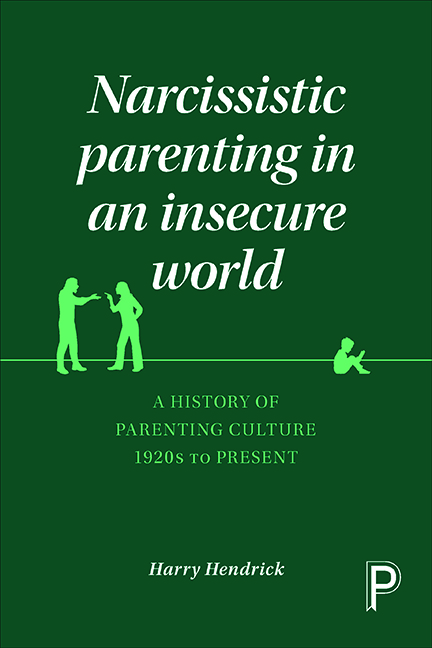Book contents
- Frontmatter
- Dedication
- Contents
- About the author
- Acknowledgements
- Introduction
- Part One The origins of social democracy’s family ideal: 1920s–1940s
- Part Two Characteristics of the ‘Golden Age’: 1940s–early 1970s
- Part Three Influences and examples from the USA
- Part Four Parental narcissism in neoliberal times: 1970s to the present
- Part Five Therapeutic reflections
- Index
six - Aspects of neoliberalism: political, economic and social realignment
Published online by Cambridge University Press: 05 April 2022
- Frontmatter
- Dedication
- Contents
- About the author
- Acknowledgements
- Introduction
- Part One The origins of social democracy’s family ideal: 1920s–1940s
- Part Two Characteristics of the ‘Golden Age’: 1940s–early 1970s
- Part Three Influences and examples from the USA
- Part Four Parental narcissism in neoliberal times: 1970s to the present
- Part Five Therapeutic reflections
- Index
Summary
It is a world where…the market forces which transformed the spheres of production and consumption relentlessly challenged our notions of material certainty and uncontested values, replacing them with a world of risk and uncertainty, of individual choice and pluralism and of a deep-seated precariousness both economic and ontological…it is a world where the steady increment of justice unfolding began to falter: the march of progress seemed to halt. But it is a society propelled by rising uncertainty but also by rising demand. For the same market forces which have made precarious our identity and unsure our future have generated a constant rise in our expectations of citizenship and…have engendered a widespread sense of demands frustrated and desires unmet.
From the ‘golden age’ to modern times
In folk memory, the post-war period until the early 1970s is widely known as a time of reasonable certainty and security: high levels of employment, a rising standard of living, credit-based consumerism, better housing, the expansion of numerous personal and sexual freedoms, a new era of female emancipation, and a self-conscious and confident youth culture. The decades were marked by a consensus of sorts, despite there being deep regional, religious, generational, gender and class divisions on various aspects of the reforming agenda. With respect to welfare, the economy, limited redistribution of resources, penal welfarism, and a measure of social justice there was broad public acceptance of the post-war settlement. Such ‘anti-social’ behaviour as might occur was attributed to maladjusted personalities, poverty, and problem families. In response, the deviant individual was to be reformed by a growing army of psychologically informed social workers. Of course, all this changed with the post-1960s transition to what is sometimes called Late Modernity, as it witnessed the shift from ‘a world whose accent was on assimilation and incorporation to one which separates and excludes’.
In the twenty years after 1973, says Eric Hobsbawm, society ‘lost its bearings and slid into instability and crisis; and yet, until the 1980s it was not clear how irretrievably the foundations of the Golden Age had crumbled’. Central to the crisis, he notes, was the Cultural Revolution with the rise of individualism, and the economic depression, which brought with it a restructuring of labour markets.
- Type
- Chapter
- Information
- Narcissistic Parenting in an Insecure WorldA History of Parenting Culture 1920s to Present, pp. 201 - 226Publisher: Bristol University PressPrint publication year: 2016



